30+ AI Customer Service Statistics [2025]

![30+ AI Customer Service Statistics [2025]](https://s3.us-east-2.amazonaws.com/assets.yourgpt.ai/content/uploads/2025/09/09112703/statistics.png)
Customer service is changing fast — powered by generative AI and smarter self-service tools. Here’s how 2025 is shaping up:
The numbers are clear — AI isn’t just improving support, it’s redefining how customers connect with brands.
AI in customer service is becoming a core part of how organisations deliver faster, more personalised, and reliable support in 2025. Leaders across industries are using AI to improve efficiency, reduce costs, and maintain service quality as customer expectations continue to rise.
This blog presents 30+ trusted statistics that show how AI is improving customer experience, agent productivity, and business outcomes.
Reliable statistics provide the evidence needed to plan investments, evaluate automation strategies, and balance AI with human support.
Whether you are introducing AI to your customer support strategy or scaling existing tools, these numbers highlight the practical role AI is playing in customer service today.
Before looking at the numbers, it helps to know how we verified them. AI customer service data can guide smart decisions, but many figures shared online lack proper context or reliability.
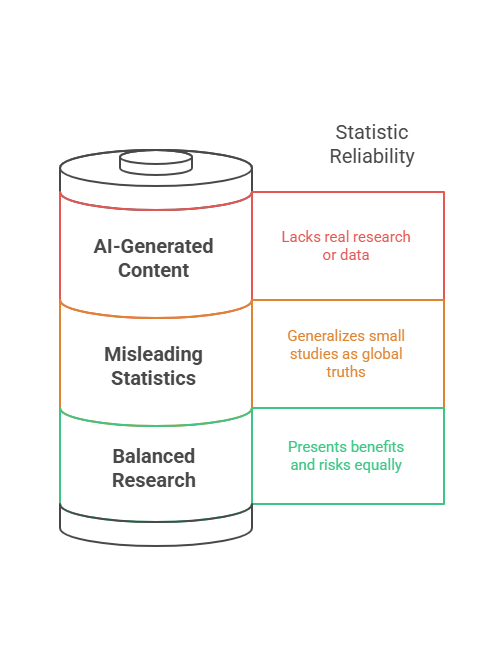
AI customer service statistics can be valuable for decision-making, but not every number shared online reflects the full picture. Many figures appear credible at first glance but often miss important context. Here are common Issues with AI Statistics Online:
We have listed the top statistics after reviewing trusted sources, collecting our own report, taking to our users, and comparing multiple reports to make sure the insights shared are accurate and representative.
In 2025, AI is being used across customer service to provide faster, more accurate, and more personalised support. The following statistics show how both businesses and customers are adopting these tools across industries.
Companies are moving quickly from testing to real deployment. Adoption rates show that both leaders and customers see AI as a key part of the future of service.
Investment in AI for customer service continues to rise as businesses see clear returns. The chatbot market and customer experience platforms are growing steadily, and spending through AI-powered interactions is expanding across industries.
Customer experience is one of the main areas where AI is already making an impact. The statistics below highlight how expectations and outcomes are changing as generative AI becomes part of everyday interactions.
Trust is a key factor in how AI is adopted for customer service. While businesses are moving quickly to integrate AI, concerns about accuracy and fairness remain most important.
AI is changing how support teams work, but many agents feel underprepared to use it effectively. Training and clarity around AI strategy remain major gaps.
Preferences across generations show where the demand is shifting.
Related Reading
Adoption is accelerating. IBM reports that 42% of large companies already use AI in customer service, while another 40% are testing solutions. AI is becoming a standard part of support strategies worldwide.
The AI chatbot market is valued at $7.8B in 2024 and projected to reach $27.3B by 2030. Growth is driven by enterprises using chatbots for customer support, sales, and self-service, with retail, banking, and healthcare leading adoption.
Trust in AI for customer service is improving, but accuracy can vary across providers. Teams that want consistent results need platforms with strong models and clear guardrails. YourGPT provides reliable answers with smooth collaboration between AI and human agents.
Not yet. Gartner data shows only 14% of issues are fully resolved through self-service, rising to 36% for very simple cases. AI-powered self-service is improving these numbers, but customers still expect human help for complex queries.
No. AI is best at handling routine tasks and scale, while human agents remain critical for complex or emotional conversations. The future of service is AI and humans working side by side.
AI improves experience by providing instant answers, routing queries correctly, and supporting agents with real-time recommendations. Customers get faster, more personalised service, while agents can focus on meaningful cases.
AI lowers costs by deflecting simple tickets and reducing agent workload. Enterprises report millions saved through shorter resolution times, fewer inbound calls, and higher efficiency per agent.
Retail, banking, healthcare, telecom, and travel are leading adopters. Retail uses AI for guided shopping, banking for account support, healthcare for scheduling, telecom for outage updates, and travel for booking changes.
AI reduces wait times by instantly resolving common questions. Some companies have seen up to 80% faster responses, freeing agents to focus on complex cases and reducing backlogs.
Key challenges include integration with existing systems, agent training, data security, and customer trust. Companies also need smooth handoff to humans for complex or high-stakes cases.
AI in customer service is delivering clear results in 2025. Businesses are using it to shorten wait times, improve consistency, and provide more personalised support at scale. Customers benefit from faster and more accurate answers, while agents gain the space to focus on complex conversations that need empathy and judgment.
The real strength comes from combining both. AI ensures efficiency and reliability. Humans ensure connection and trust. Together, they create service that meets today’s expectations and builds long-term loyalty.
For companies ready to take this step, YourGPT offers an AI-first platform designed to improve support and sales while working hand in hand with your team.
YourGPT gives your team instant AI power—faster replies, lower workload, and enterprise-grade security.
Full access for 7 days · No credit card required
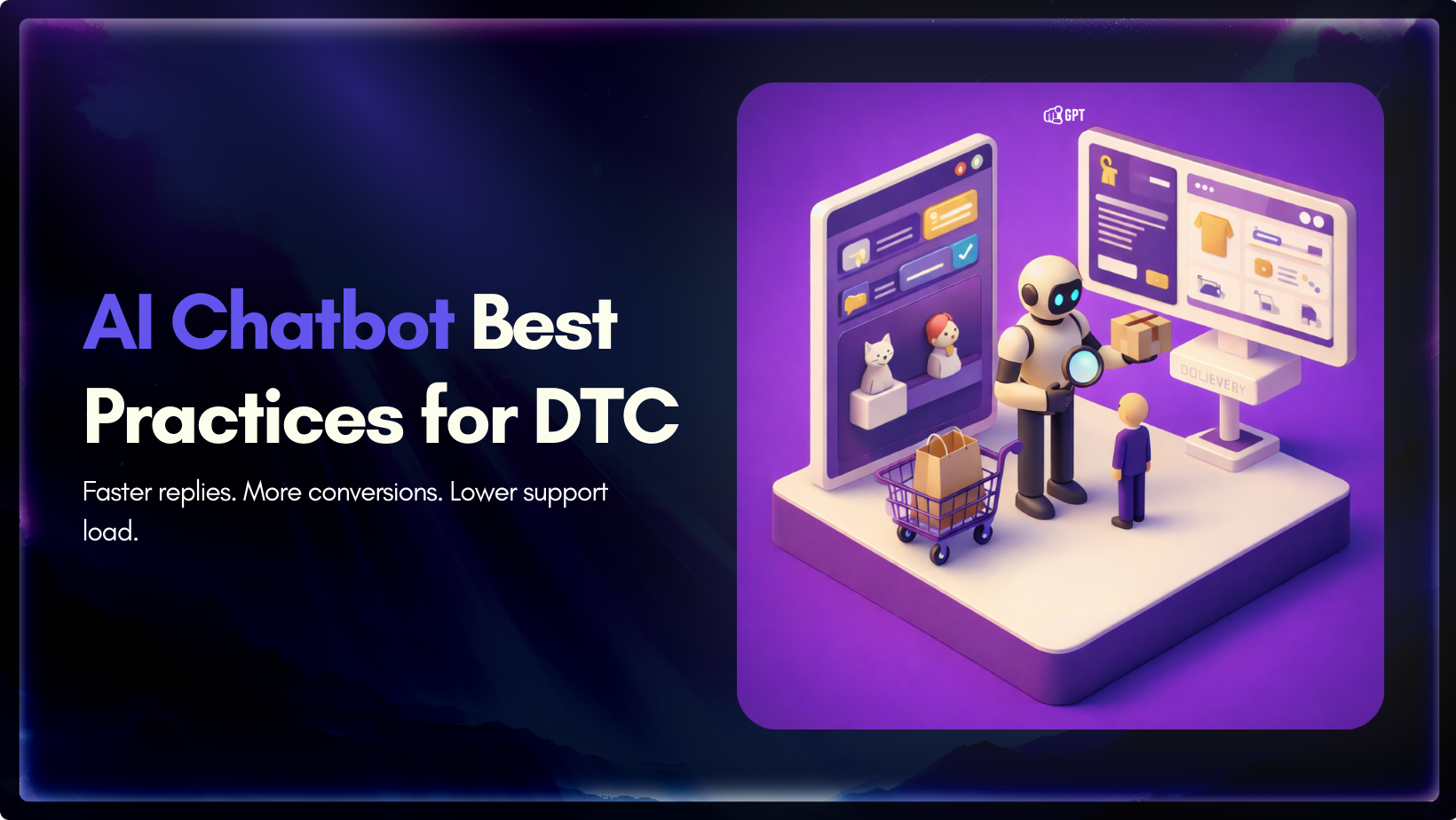
Nearly 70% of shoppers who add something to their cart leave without buying (glued). Some were never serious. But a lot of them had a question, needed a fast answer, and moved on when one did not come. That is the actual problem AI chatbots solve in DTC, when built correctly. A specific shopper, a […]

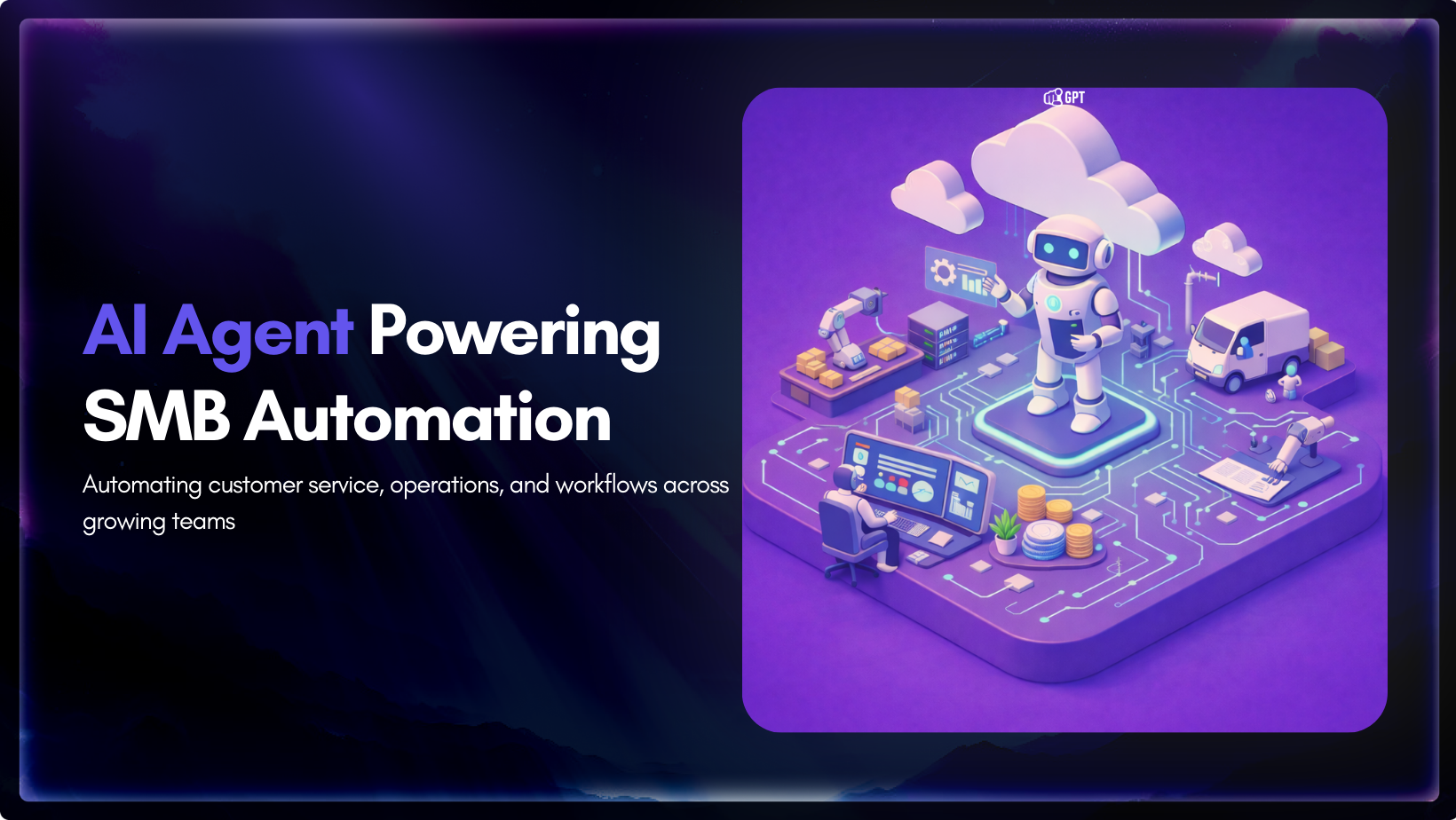
Small and medium businesses are facing a structural shift. Customers expect instant responses. Work happens across dozens of tools. Teams remain lean. Costs keep rising. Yet service quality is expected to match large enterprises. For years, businesses depended on chatbots, helpdesks, and manual workflows. These systems offered limited relief, handling basic questions and ticket routing […]

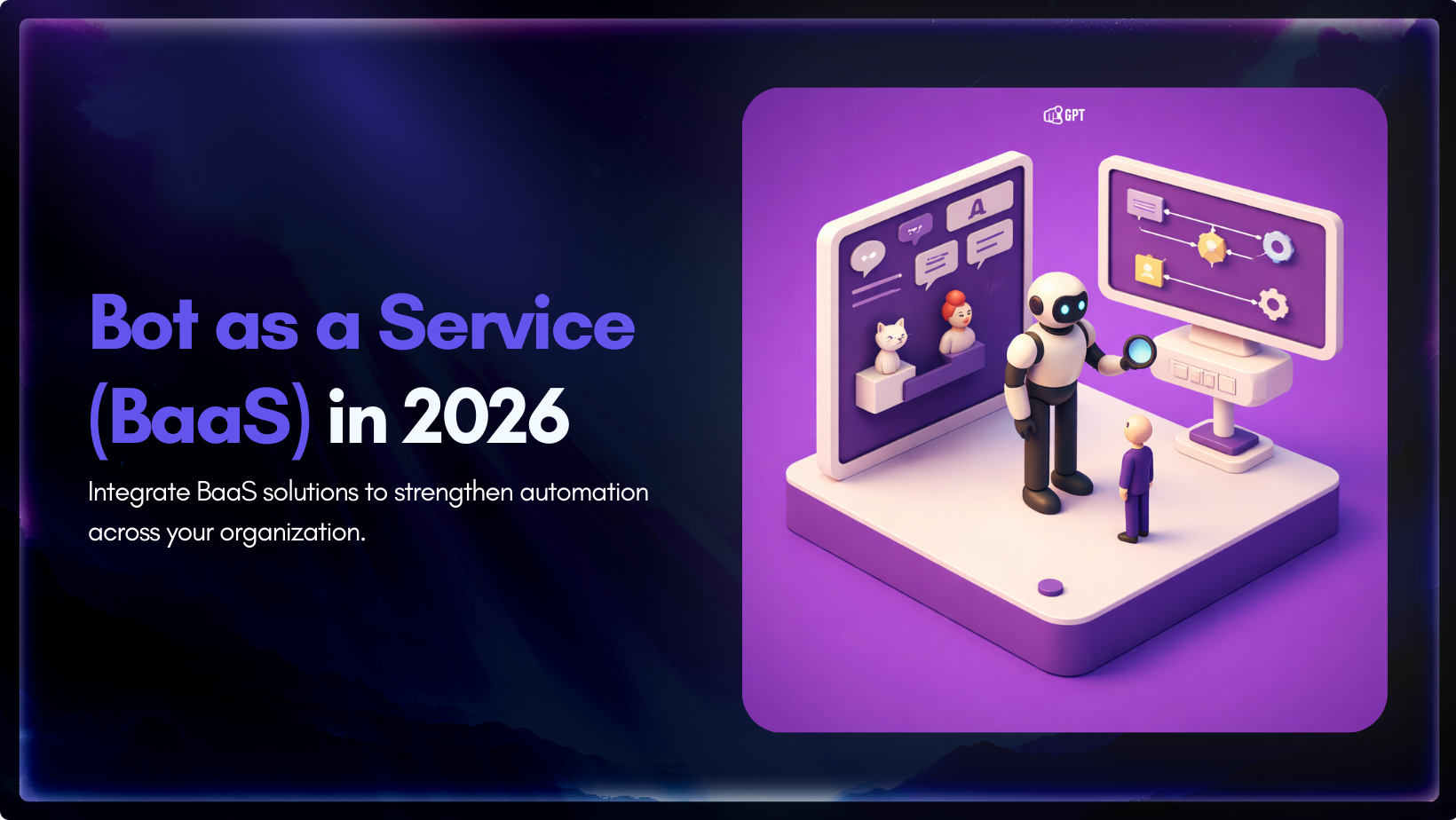
Automation defines how modern enterprises execute, respond, and grow. Customer conversations are handled by AI. Transactions move through automated workflows. Approvals route across departments without manual follow-ups. In high-performing organizations, intelligent systems are embedded directly into revenue operations, service delivery, finance, and internal support. Investment trends confirm this shift. The global conversational AI market surpassed […]

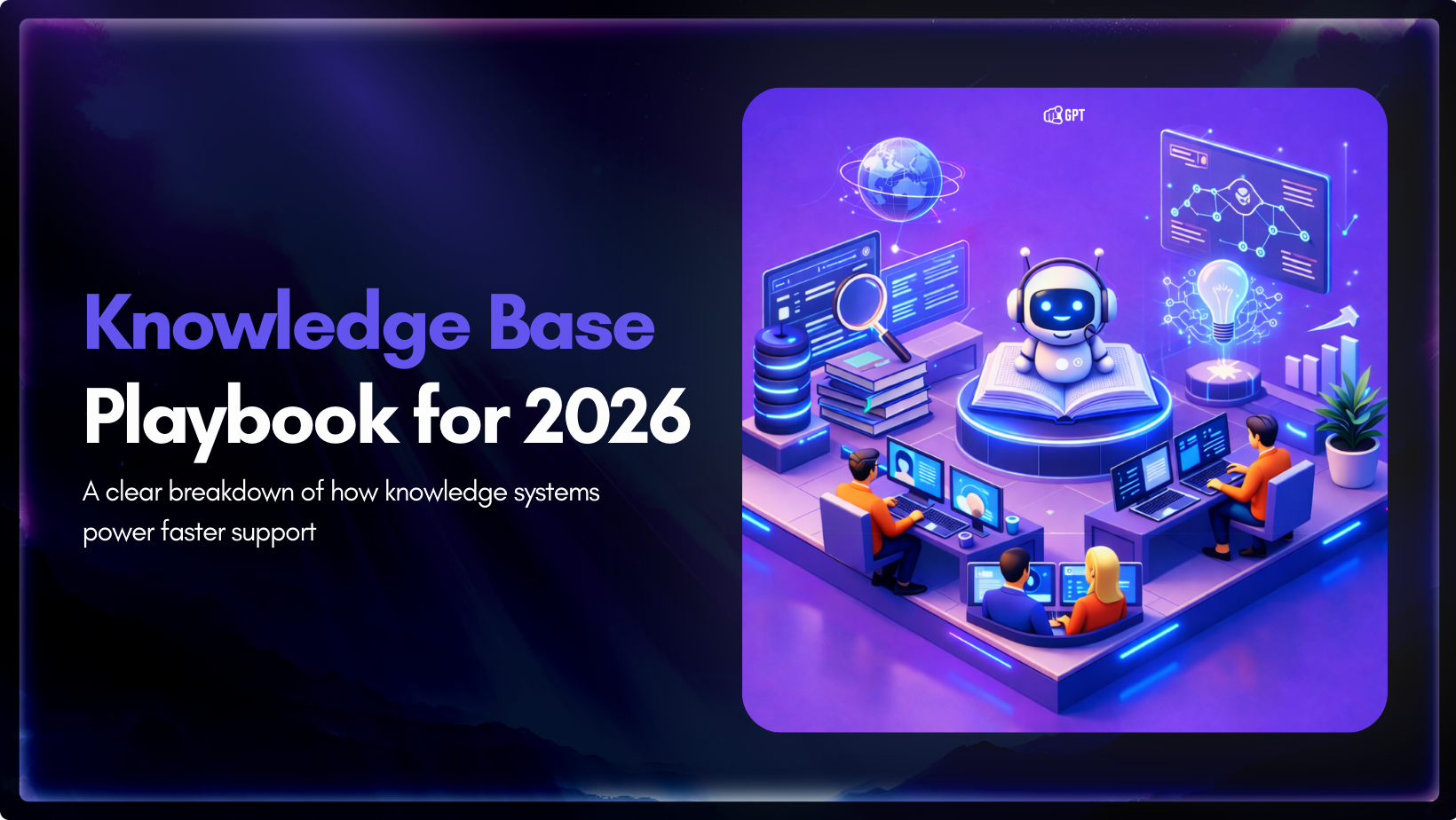
Access to clear, accurate information now sits at the center of customer experience and internal operations. People search first when setting up products, reviewing policies, or resolving issues, making structured knowledge essential for fast, consistent answers. A knowledge base organizes repeatable information such as guides, workflows, documentation, and policies into a searchable system that supports […]

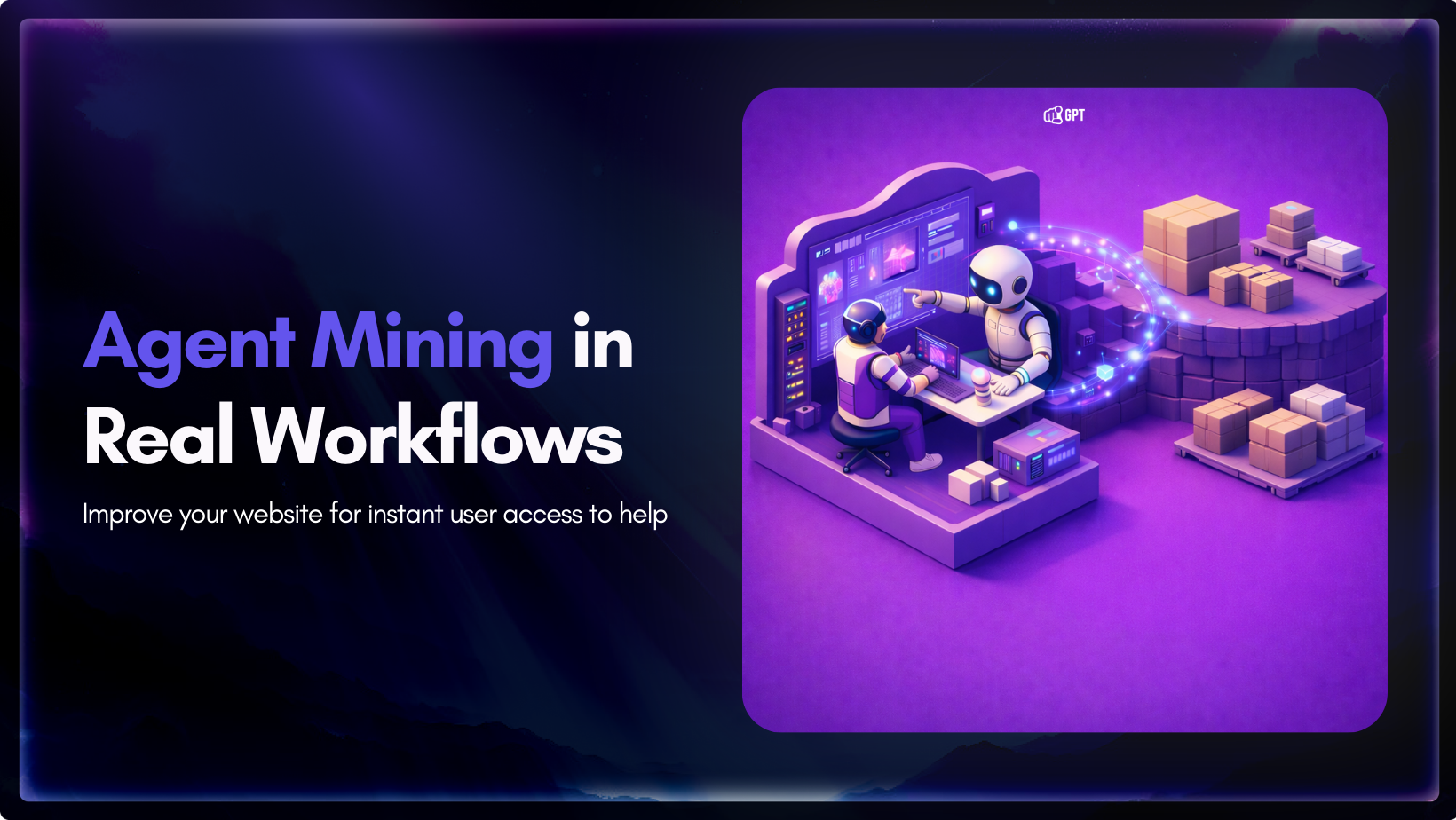
TL;DR Agent mining shifts AI from answering questions to executing real work across systems through controlled, repeatable workflows with verification. By automating repetitive operations with guardrails and observability, agents reduce friction, improve consistency, and let humans focus on decisions and edge cases. For a decade, AI was mostly framed as something that answers. It explains, […]

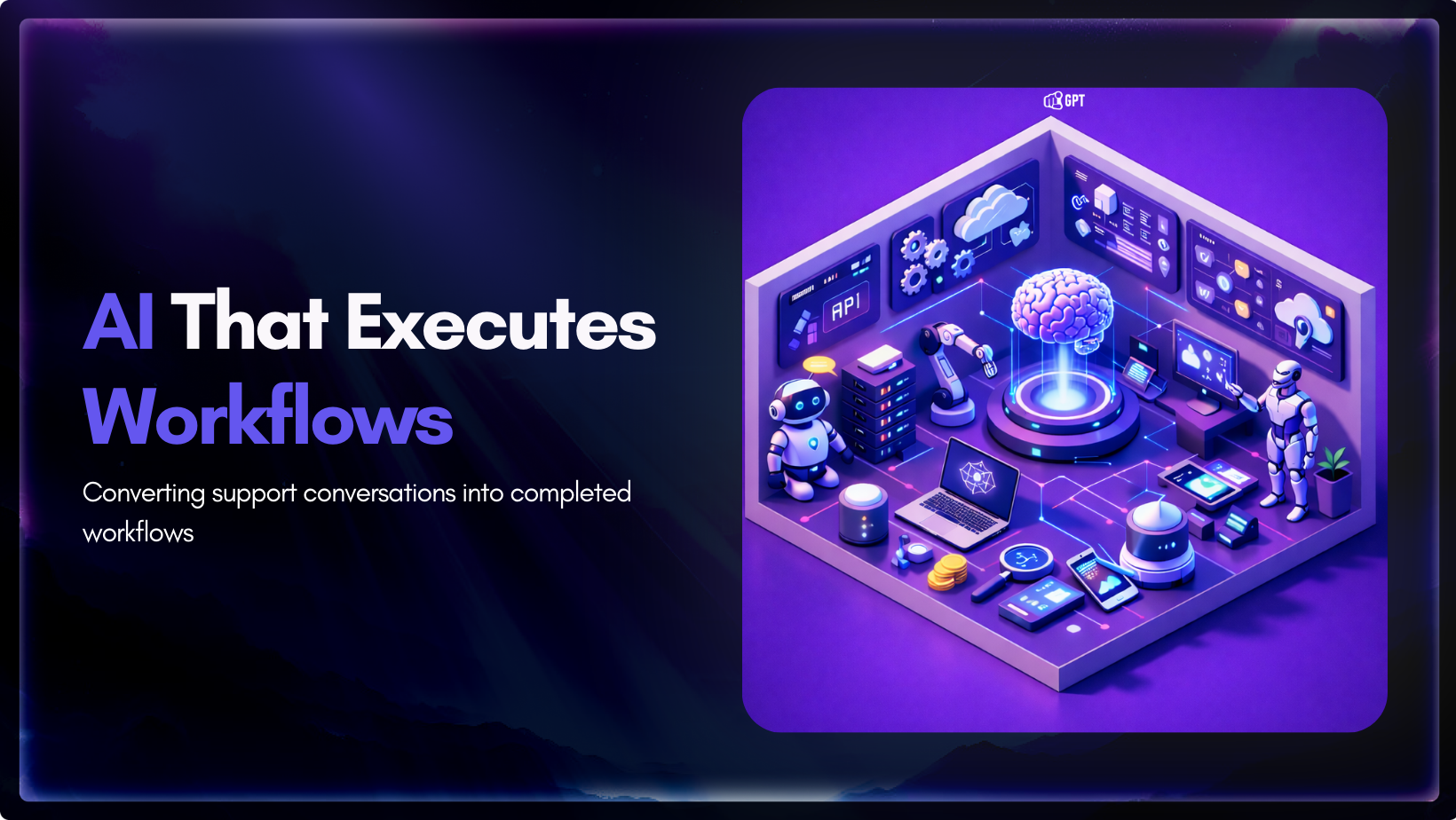
Say “AI” and most people still think ChatGPT. A chat interface where you type a question and get an answer back. Fast, helpful, sometimes impressive. Three years after ChatGPT went viral, surveys show that’s still how most people think about AI. For many, ChatGPT isn’t just an example of AI. It is AI. The entire […]
